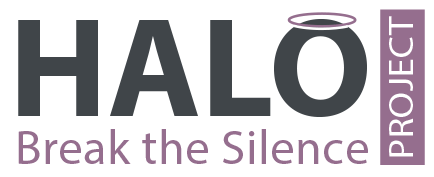
The Halo Project works to raise awareness and support the victims of taboo based female violence.
When you think of women’s issues in Britain today, what do you think of? Perhaps you think of equal pay, parity in parliament, sexism, or even the tampon tax? You might be surprised to know that behind closed doors, in numerous communities across the country, women of all ages, ethnicities and education statuses are being subjected to forced marriage, honour based violence and female genital mutilation. These women are often turned against by the ones they trust the most. They face horrendous situations like abuse, homelessness and forced emigration and more often than not have no-one to turn to for help.
Last year, there were approximately 12 honour killings in the UK alone, not taking into account the women and children killed whilst forcibly living abroad by their families. Female genital mutilation occurrence rates in the UK are also extraordinarily high, with the NSPCC (as most of these crimes are committed against girls aged 5–8 years old) reporting that over the past 2 years, 1,700 cases have been reported by specialist clinics; again a statistic probably only representing the tip of the iceberg. And, perhaps most shockingly for young people, women of South Asian descent under 24 are 3 times more likely to commit suicide than their Caucasian counterparts.
Men are also affected by honour based violence and forced marriage, not only often being forced into perpetrating it, facing ostracisation and violent repercussions, but are also the victims of it. As with men’s issues generally, they are under-represented when these crimes are discussed yet it can’t be ignored that they are largely committed within family groups, so a holistic understanding of all the intra-familial relationships and layers of agency are useful to eradicating cases of these crimes.
However, there are support groups emerging up and down the country that try and tackle these often taboo issues within complex community situations. The Halo Project, based in Middlesborough, is one of these, representing, supporting and doing advocacy work on behalf of victims of these crimes in the North East of England.
The charity faces a difficult task as prevention and prosecution of these crimes requires a high level inter-agency communication, meaning the police force, social services and community groups have to work cohesively together. This can often prove unfeasible with the constraints on service budgets and time, and so the organisation assists in linking together case-work from each to try and join the dots between warning signs like domestic abuse and occurrences of honour based violence.
Halo also has to find innovative ways to raise community awareness of these crimes, as many people associate them solely with “developing” nations. One of Halo’s projects is a student arm here at Durham, which exists as part of the Pro Bono Society. Jake Perryman, who coordinates the project, sees student involvement as important when engaging with these issues, stating:
“It’s important for the Halo Student Hub to play an active role here in Durham so we can make a positive impact on student awareness. This lets victims know that they are not alone, helps prevent the problem from being ignored by the wider community, and hopefully inspires talented students, and future holders of responsibility, to commit to making a difference here at the university and after they leave.”
The charity’s head, Yasmin Khan, is also very positive about the presence of Halo at Durham, enthusing:
“Durham students have worked hard to raise awareness of the key issues…The Halo Project charity is working in partnership with students to host a mock trial event, here we will explore some of the key issues with legal professionals, this is one of a series of events we will be hosting throughout the academic year to educate and inform the wider student community and its associated partners.”
The mock trial and discussion forum will take place this Friday the 27th at 7:30pm in the Palace Green Debating Chambers. Attendance is free and open to all and attendees will get the chance to hear expert views on how these issues are criminalised from the charity’s head and barristers who work with these victims.
If you would like to know more about the event, visit its Facebook page: https://www.facebook.com/events/1486890221615344/
And if you’re interested in these issues more generally and how you can assist HALO in their pursuit of awareness and eradication, visit their website: http://www.haloproject.org.uk
